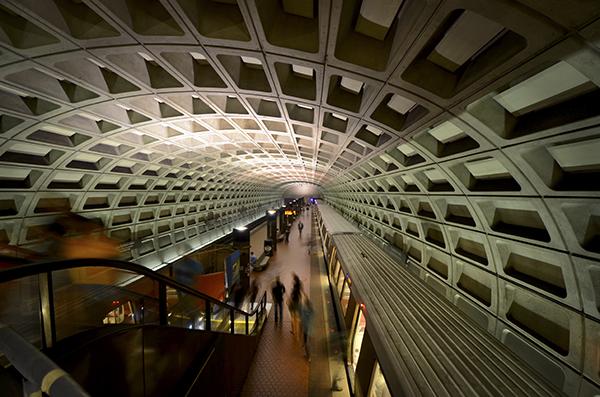The former leader of the Student Association Senate wants to make discounted Metro rail and bus fares a reality for GW students as soon as this fall.
Casey Syron, who stepped down from his role as Student Association executive vice president on Friday, said he has been working with the Washington Metropolitan Area Transit Authority to develop a proposal that would offer unlimited rides to GW students.
Syron said students would pay for the passes as an additional fee on top of their tuition. A pass would cost about about $260 each school year, which would amount to about $1 for each day of the fall and spring semesters.
University and Metro officials confirmed that they are discussing the possibility of a partnership, but have not released details.
“The University is evaluating WMATA’s University Pass program proposal and discussing it with staff and students,” University spokesman Kurtis Hiatt said.
Similar transportation discounts are already offered to college students in major cities across the country including Boston University, where students can ride the “T” subway system for 11 percent off per semester, the University of Miami where students receive 50 percent off monthly passes for the city’s Metrorail and in Chicago where the U-Pass discount offers local college students unlimited rides for a fee.
Syron, who is from Chicago, said seeing the ease of student transportation in that city encouraged him to advocate for the Metro discount in D.C. He said unlimited Metro rides “practically changes the culture, not only of the University, but of the city.”
Before implementing the plan, the SA would put the proposal to a student vote during SA elections this spring to gauge student support, Syron said. That process would be similar to the two referenda that SA leaders put forward last year on sexual assault training and fossil fuel divestment.
“We need a student referendum to say students support this so we have data behind that, but also so students can consent to paying or can consent to the idea of paying,” Syron said.
Syron said the plan would ideally be mandatory for incoming students, likely starting with the Class of 2020. Returning students could opt into the program.
“What I would love to see is, the Class of 2020 comes in, and it’s mandatory for them, so a sophomore next year or a freshman this year and sophomore next year can see how awesome the system is and say, ‘Hey this is awesome, I want to do this too,’” Syron said.
The expected proposal would offer students unlimited Metro rail and bus rides at a significant discount compared to general rates students must now pay. A 28-day unlimited Metro pass currently costs $237.
The Foggy Bottom and West End Advisory Neighborhood Commission voted unanimously in November in support of a plan to allow students unlimited rides at a discounted rate after ANC member and sophomore Eve Zhurbinskiy lobbied the group.
D.C. students between the ages of five and 21 who attend a D.C. public school or D.C. public charter school already have free Metro passes and free Metrobus passes, according to the District Department of Transportation website.
Syron said the passes would make it easier for students who commute in to D.C. from Virginia, and would incentivize students to explore the city.
“This is great for academics as well,” Syron said. “How many times would a professor love to have his class go to the Smithsonians because that’s all GW sells itself on, is the city, the location. So why not give more access to the students to the location that we have?”
WMATA decided to push for college discounts on Metro after an October 2015 report concluded such a discount could make up for decreased ridership and boost revenue without hiking fares. Metro’s ridership has fallen 5 percent since 2010 due to concerns over service quality and reliability, The Washington Post reported.
Isabel Pellegrino contributed reporting.







